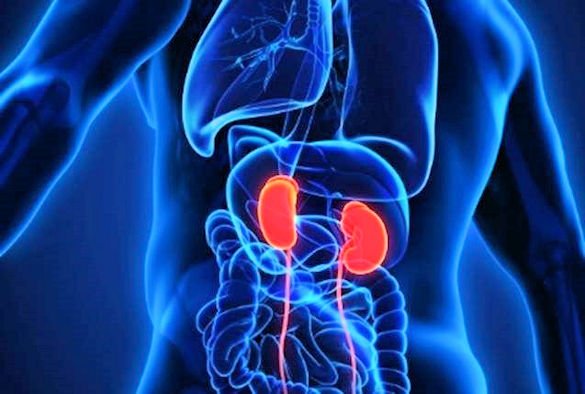Researchers help address kidney health inequalities

Researchers at the University of Liverpool have contributed to a new report which calls on the research community to take urgent action to address the social and economic inequalities that put some people at greater risk of kidney disease.
The new report by the UK’s leading kidney charity, Kidney Research UK, reveals inequalities due to age, sex, education, location or lack of wealth persist, despite widespread awareness of the barriers some people face.
Dr Andrew Chetwynd, Kidney Research UK Senior Non-Clinical Fellow at the University of Liverpool has contributed to the report, 'Time To Act: A New Review of Kidney Health Inequalities'. Launched today, it is authored by an academic, clinical and patient team and comes five years after the charity’s previous report of kidney health inequalities outlined 27 recommendations for change in clinical and research practice. The new review exposes the limited progress since 2018, impacting people’s health and risk of disease.
The updated evidence confirms some communities are still impacted more by kidney disease than others, and disease progresses faster in some people. Dr Chetwynd’s work specifically highlights gaps in research that could help us better understand the disproportionate effect of kidney disease on children. His work has also shown, often, inequalities overlap and many people experience inequalities in multiple ways, which increases their risk of poor kidney health.
The report shows how easy it is for these inequalities to happen, for example, people of Black, Asian or mixed heritage are more likely to experience kidney failure and need dialysis or a transplant to stay alive, than white people. Black people are more likely to live in deprived areas and kidney failure is twice as likely in under 70s living in deprived areas. In addition, many people struggle with their mental health as a result of their kidney disease and it can have a cyclical effect, people with mental health conditions being at greater risk of kidney disease progression and worse outcomes.
Chetwynd said: “With the advancement of medicine and treatments it’s easy to overlook the basic science that can offer us the greatest insight into this disease - particularly paediatric kidney patients who suffer from the greatest loss of life years due to their earlier onset of kidney disease. This report highlights where more work needs to be done to ensure no patient is left behind.”
The charity has identified vital gaps in research including opportunities to use knowledge of genetic and societal risk factors to design interventions to improve kidney health. The report also provides more evidence about how differentiated public health communication can help patients understand their diagnosis and care and to show how optimising digital health innovations can reduce kidney health inequalities. Meaningful engagement from patients with diverse personal demographics and life experiences must underpin all research, the charity says.
The report can be found at: www.kidneyresearchuk.org/time-to-act